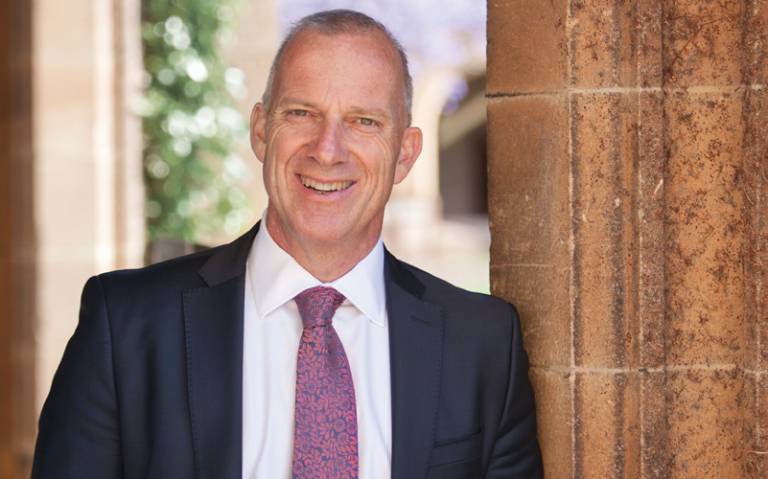Profile: UCL should welcome the public onto campus, says President and Provost
12 July 2021
UCL’s Egyptology collection, galleries, rare books and the auto-icon of Jeremy Bentham are all attractions on campus which should be more open to the public, says UCL President & Provost Dr Michael Spence in an interview with The Times.

The new vice-chancellor of the UK’s biggest university will turn it into a tourist destination and promote the dead body of a philosopher as an attraction for visitors.
University College London’s new provost, Professor Michael Spence, intends to change the traditional ivory tower image by widening access to the public, encouraging visitors and doing more research involving residents.
The 59-year-old Australian also wants to promote free speech on campus by introducing a culture of “disagreeing well” among students and academics so they feel comfortable voicing unfashionable opinions. Long-term plans include inviting a wider range of people on to campus and setting up conversations that confront controversial issues in a controlled manner. He said the famous Oxford Union debates were too binary and that he wanted to establish more nuanced discussions.
Spence, university president and provost, told The Times that his former institution, Sydney University, was that city’s third most visited attraction, after its bridge and opera house. Now he wants to do the same in London by enticing crowds to its Egyptology collection, galleries, rare books and Jeremy Bentham, whose body (with a wax head) is in a glass box in its foyer. The university is already in talks with a “blue badge” tourist guide to create free tours for the public from the autumn.
While people can already visit some of its historic buildings and museums, this is not well known. It will now market this widely and actively invite the public on to the campus. Tour highlights will include the Wilkins Building, used to depict ancient Rome in the film Gladiator; a bust of Darwin; the Grant Museum of Zoology, which boasts dodo bones and what it claims is the world’s rarest skeleton, the quagga (an extinct type of zebra); and the Petrie Museum of Egyptian Archaeology.
This article first appeared in The Times on 12 July 2021.
Links
- Original article in The Times
- UCL President and Provost
- Dr Michael Spence’s biography
Image
- Dr Michael Spence
 Close
Close

